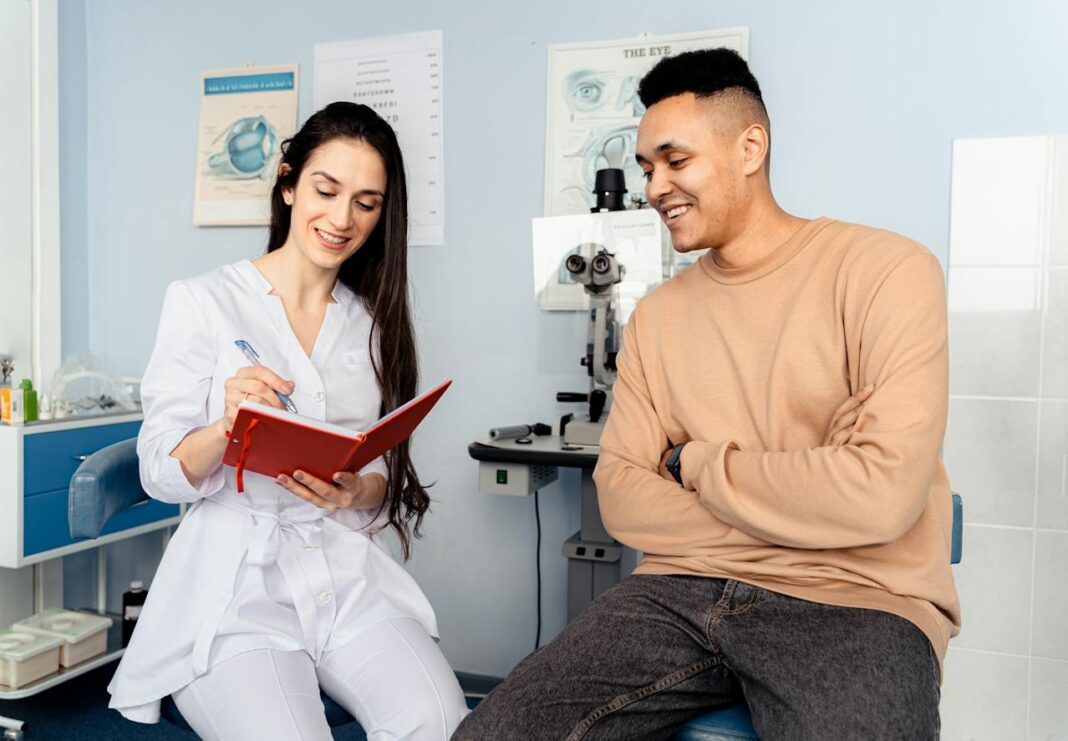Starting a difficult but essential dialogue with your physician about drug addiction can be a crucial step on the road to recovery. When it comes to helping you find the right resources and treatment choices, your doctor is a vital resource. This post will go over a thorough how-to guide for approaching and talking to them about drug addiction help.
Self-Reflection and Preparation
Before speaking with your physician, consider your problems and reasons for wanting assistance. Think about maintaining a notebook to record your triggers, trends, and the effects of your substance use on your day-to-day activities. This self-awareness gives you the ability to communicate with clarity and gives your doctor important information about your particular circumstances. You get a better knowledge of your journey via this reflective process, which empowers you and helps you have a more meaningful and fruitful conversation with your healthcare practitioner.
Choose the Right Time and Setting
It’s crucial to choose a suitable moment and location for your talk. Make an appointment with your physician instead of addressing the matter in a hurried or crowded setting. This guarantees that you and your physician will have enough time to address your problems fully. It is possible to communicate freely without worrying about being judged in a private and discreet environment. By making the effort to make yourself feel at ease, you build a foundation of trust that encourages a more honest and open discussion.
Be Open and Honest About Your Substance Use
Being truthful is crucial while conversing with your physician. Give an honest description of your drug usage, including the kinds of drugs you take, how often you use them, and any attempts you’ve made to stop. Your doctor can use this information to determine the extent of your addiction and suggest appropriate courses of action. Remember that physicians are required to maintain anonymity, and providing correct information is essential for successful intervention. Your openness helps your doctor, and you build a cooperative relationship that will enable a more precise diagnosis and individualized treatment plan.
Express Your Motivation for Change
Express that you want to make a change for the better and your resolve to get drug addiction treatment. By communicating your recovery drive, you enable your physician to understand your objectives better and create a treatment plan that supports your goals. Additionally, it communicates your readiness to take an active role in the healing process. Giving your doctor a clear understanding of your motives can help them create a treatment plan that is in line with your beliefs and personal objectives.
Discuss Physical and Mental Health Concerns
Drug abuse frequently has an impact on one’s physical and emotional well-being. Talk about any physical symptoms, mental health issues, or co-occurring disorders you may be dealing with throughout your session. This information helps your doctor fully address your health issues and may have an impact on the suggested treatment methods and support services. Your doctor may develop a comprehensive treatment plan to tackle both the acute symptoms and underlying health issues if you and your partner talk about the larger impact on your well-being.
Ask Questions and Seek Clarification
Ask questions concerning the available treatments, possible side effects, and the overall course of your recovery when you speak with your doctor. Ask questions about anything you’re not sure about to make sure you fully comprehend the suggested interventions. This proactive approach gives you the ability to choose your course of treatment with knowledge. Engaging in active participation in the conversation creates a sense of control and an active role in your recovery process by helping you understand the suggested solutions.
Collaborate on a Treatment Plan
Before you can start treatment, you need to find a medical facility that has a trained staff who can help you get better. Consider looking for drug rehab in San Antonio where you can find high-quality medical treatment. Work with your doctor to create a customized treatment plan after expressing your concerns. This strategy might consist of medication-assisted therapy institutes or a mix of treatments based on your requirements. Engage in active participation in the decision-making process by offering feedback on elements that suit your objectives and preferences. By ensuring that your treatment plan is tailored to your specific situation, a collaborative approach can increase the probability of success and foster a sense of ownership over your recovery process.
Conclusion
It’s a brave and life-changing move to discuss your drug addiction with your doctor. Crucial elements of this process include approaching the discussion with self-reflection, selecting the appropriate time and location, being truthful and forthcoming, expressing your purpose for change, talking about issues related to your physical and mental health, asking questions, and working together to develop a treatment plan. Recall that your physician is an invaluable partner on your road to recovery, and starting this discussion with them is a step in the right direction toward a happier, healthier life.

















